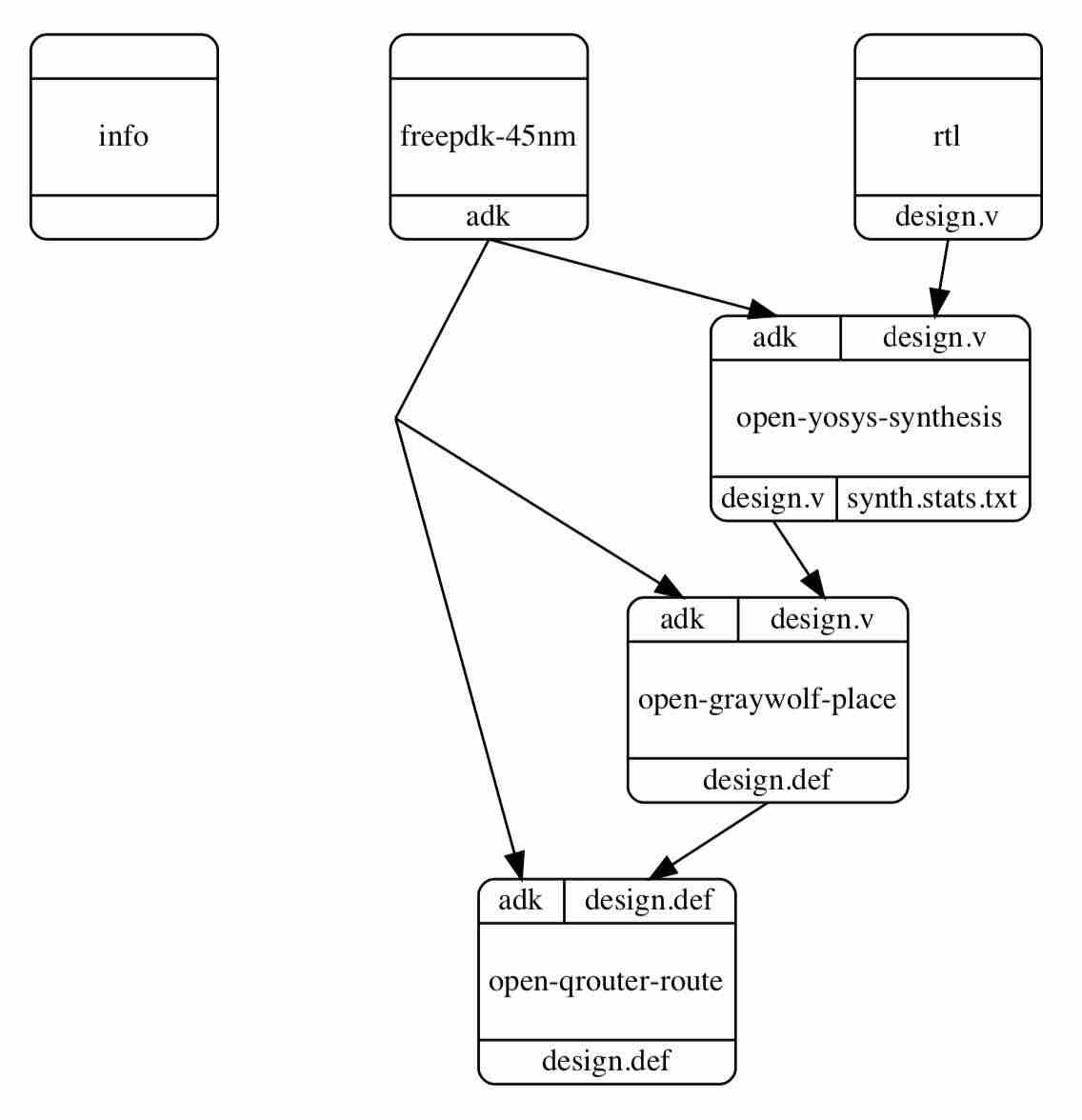Author: Christopher Torng (ctorng@stanford.edu)
mflowgen is a modular flow specification and build-system generator for ASIC and FPGA design-space exploration built around sandboxed and modular steps.
mflowgen allows you to programmatically define and parameterize a graph of steps (i.e., sandboxes that run anything you like) with well-defined inputs and outputs. Build system files (e.g., make, ninja) are then generated which shuttle files between steps before running them.
Key features and design philosophies:
-
Process and technology independence -- Process technology libraries and variables can be abstracted and separated from physical design scripts. Specifically, a single node called the ASIC design kit (ADK) captures this material in one place for better maintainability and access control.
-
Sandboxed and modular steps -- Traditional ASIC flows are composed of many steps executing with fixed path dependencies. The resulting flows have low reusability across designs and technology nodes and can be confusing and monolithic. In contrast, modularity encourages reuse of the same scripts across many projects, while sandboxing makes each step self-contained and also makes the role of each step easy to understand (i.e., take these inputs and generate those outputs).
-
Programmatically defined build-system generator: A Python-based scripting interface and a simple graph API allows flexible connection and disconnection of edges, insertion and removal of steps, and parameter space expansions. A simple graph can be specified for a quick synthesis and place-and-route spin, or a more complex graph can be built for a more aggressive chip tapeout (reusing many of the same steps from before).
-
Runtime assertions -- Assertions can be built into each modular node and checked at runtime. Preconditions and postconditions are simply Python snippets that run before and after a node to catch unexpected situations that arise at build time. Assertions are collected and run with pytest. The mflowgen graph-building DSL can also extend a node with design-specific assertions by extending Python lists.
-
A focus on hardware design-space exploration -- Parameter expansion can be applied to steps to quickly spin out parallel builds for design-space exploration at both smaller scales with a single parameter (e.g., sweeping clock targets) as well as at larger scales with multiple parameters (e.g., to characterize the area-energy tradeoff space of a new architectural widget with different knobs). Dependent files are shuttled to each sandbox as needed.
-
Complete freedom in defining what steps do -- Aside from exposing precisely what the inputs and outputs are, no other restrictions are placed on what steps do and a step can be as simple as hello world (one line). A step may conduct an analysis pass and report a gate count. A step can also apply a transform pass to a netlist before passing it to other tools. In addition, a step can even instantiate a subgraph to implement a hierarchical flow.
mflowgen ships with a limited set of ASIC flow scripts for both open-source and commercial tools including synthesis (e.g., Synopsys DC, yosys), place and route (e.g., Cadence Innovus Foundation Flow, RePlAce, graywolf, qrouter), and signoff (e.g., Synopsys PTPX, Mentor Calibre). In addition, we include an open-source 45nm ASIC design kit (ADK) assembled from FreePDK45 version 1.4 and the NanGate Open Cell Library.
More info can be found in the documentation.
mflowgen is offered under the terms of the Open Source Initiative BSD 3-Clause License. More information about this license can be found here:
